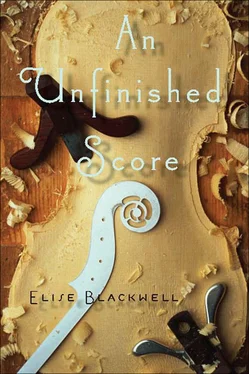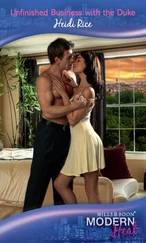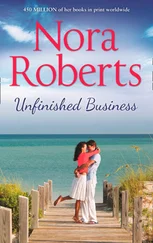“As long as musicians have required food, money has played a role in music,” Daniel says, a sarcastic imitation of one of their teachers at Curtis.
“Perhaps,” says Suzanne, looking directly at Petra, “we should be like Meyerbeer and pay off some critics and hire our own corps de claque .”
She is thinking of the worst night of her musical life: downtown Charleston, beautiful warm weather, swaying palmetto trees, the orchestra’s back to the bay, streets filled with tourists and Spoleto festivalgoers. Between pieces the conductor broke off to raffle off a Jaguar, assuring the audience members that they could understand classical music. He brayed like a donkey — the memory still reddens her cheeks — as he introduced the worst piece of classical music she ever had to perform. “Hee-haw!” he cried, shaking his intentionally stereotypical white mane. “Hee-haw!” And then Suzanne and her new colleagues sawed away at Ferde Grofé’s Grand Canyon Suite , the music swaying ugly to suggest the covered wagons, the musicians’ humiliation complete.
The next day Ben told her he’d turned down a paying stint at a conductors institute in Maine — a chance coveted by composers better known than he. He said, “I don’t want student conductors butchering my music, me having to scream at them not to speed up the crescendos and sitting around while professional conductors tell them how they look from the back, calling out, ‘Your hands are going to run into each other! Put your left hand down! No, not in your pocket!’”
When he told her how much it paid and who would have heard the piece, she couldn’t speak to him for a day and a half. Then her anger shrank into something cool and hard and she vowed to put her career ahead of his.
“Now I know you’re kidding,” says Petra.
“There’s nothing wrong with starting with Haydn,” Suzanne says. “He invented the goddamn string quartet, so who are we to be too good for him?”
Petra leans back on straight arms, stretching her long legs out in front of her. “Okay, okay, I don’t care. This is the question I have for you: How is a viola like a premature ejaculation?”
Suzanne knows the punch line but lets Petra have her fun.
Petra shakes her legs and says, “Even if you see it coming you can’t stop it.”
Suzanne watches the gray squirrel chase the black one around and up a young ash tree. She turns and sees Daniel watching the same scene, and then he turns, his eyes meeting hers, sharing this small seen secret.
“So you’re really going to break our hearts and marry someone else?” she asks him.
He tilts his head, the lids of his eyes lowering, giving him a sleepy look. “Somehow I think you’ll get over me.”
“I’m happy for you, you know.”
He nods slowly. “I know you are.”
Suzanne lies on her back when the sun emerges from another cloud, her face absorbing the warmth, her ears softening to the rustling leaves of the trees surrounding the green, her mind retuning to Alex’s confounding concerto. It is time to begin the hard work in earnest.
While the Black Angels rehearsals are going well, Suzanne’s work on Alex’s score is an ongoing failure. The second movement of the concerto in particular feels beyond her ability, beyond even her powers to understand. She can play it now, without the score in front of her, but this is more a matter of memorization and counting than interpretation, and she cannot imagine an arrangement. The music simply doesn’t add up — angry crescendos alternating with slower mournful sections, the odd additions during the longest section of recapitulation.
For a while she works under the theory that the movement is about sex. She never deluded herself about that: her relationship with Alex started because of her looks and was always saturated with sex. It wasn’t only sex — neither of them ever thought that — but every aspect of their friendship was colored by physical attraction, by the warmth that spread in their chests upon sight, by the things they tried in bedrooms in dozens of cities, by the fact that those acts were stolen from their real lives and always wrapped in music.
So for a time she thinks she has found the key to the movement in sex, even placing the night Felder played while they made love. She believes this will allow her to fit the pieces together, to produce a whole that coheres and has broader meaning. She lets it guide her tentative decisions about instrumentation. More brass, she thinks, than she would have considered otherwise. It alters, too, the way she thinks about dynamics as she considers the ways that love is loud and soft, remembers how it felt when Alex made love to her noisily when he was angry, the intensity of her silent orgasm the night Felder played in the room.
But her theory breaks down halfway through the movement. Besides, she tells herself, Alex disliked not only program music but any music guided by extramusical ideas. He was like Ben in that, saying, “Music is its own language. It should not take its grammar from any other.”
So she starts over, taking the movement apart again, measure by measure, even slower. Once she and Alex attended a concert in which the pianist added a full ten minutes to the usual length of Beethoven’s third sonata. It was at the cathedral in San Juan, and afterward Alex and Suzanne sat across the street in a small park made strange by a statue of a penguin sailing a boat, the balmy tropical air soft on their skin. A man with a parrot on his arm rode up on a bicycle and offered to take their picture with his bird for five dollars. “Hola!” Suzanne greeted the bird, who answered “What a pretty lady.”
After Alex paid the man to leave them alone, Suzanne said, “I thought parrots could only repeat a line, not converse.”
“He was repeating a line, just not yours. I think they even imitate punctuation and speed. Unlike that pianist. It took him forty-one minutes to get through the thing.” Alex tapped his watch. “I guess he thinks he can find something in Beethoven that no one else has ever noticed if he just plays it slow enough.”
Now she finds that slowing down doesn’t help her any more than did learning to play the concerto faster. Over and over the work whispers, You never really knew me; you never understood .
She determines to do what forlorn and failing women often do; she decides to consult a psychic.
“I’ve got to see Doug about a bow issue,” she tells Ben, thinking that between this partial lie and the Chicago trip she is lying as much as she did when she was having an affair with a living man.
When he opens the door to his Hell’s Kitchen shop, Doug greets her with his full bass voice. “Don’t tell me there’s a problem with the bow. My work is always perfect.”
“It’s kind of embarrassing, but I’m here for your other talent. I need you to look into your crystal ball, or whatever it is you do.”
He puts a hand on her shoulder, looking down to make direct eye contact. “That’s not nice, my dear. It’s not quackery, and it’s not magic. I guess you could call it emotion theory, but really it’s about music. Go on back. I’m going to step out for a quick smoke while you tune.”
Alone in the crowded repair room, Suzanne strokes her viola, tightens the E string, rosins her bow. She notes the soreness under the calluses of her finger pads from playing more than usual. She needs to take a couple of light days before the Black Angels performance.
When Doug returns smelling of fresh cigarette, he takes a seat on a stool, crosses his long legs, places his hands palm up in his lap, closes his eyes, nods his readiness.
Suzanne almost laughs and tells him he’s taking his new vocation too seriously, but she stops before she speaks. She wants him to take it seriously. This is her life: the concerto is the story of her past, the reality she lives in now, the possible ruin of her future. There’s nothing at all funny about being here. Being here may save her life, which, when she closes her eyes, she envisions as ancient ruins crumbling in a stony Irish field. She inhales as deeply as her lungs allow and plays the solo voice all the way through, pausing in silence between the first and second movement and again between the second and third. After she plays the last falling note, she smiles because she has never played the composition better. The concerto almost comes together, the answer to its riddle on the tip of her tongue.
Читать дальше












